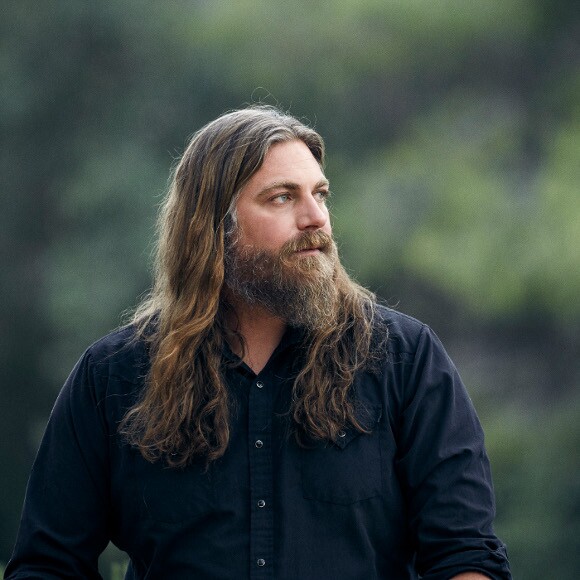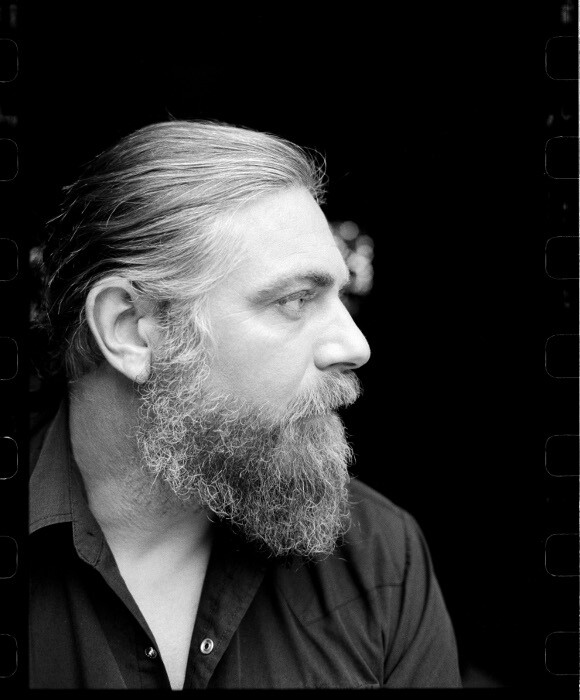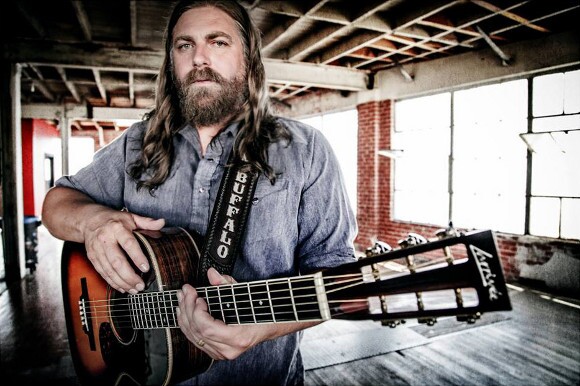The Light and Darkness of The White Buffalo

Jake Smith has spent his career crafting dark ballads in the land of sunshine.
Under the name The White Buffalo, the San Fernando Valley-based singer-songwriter's soulful tales star protagonists that seek redemption, solace, and salvation. During any given performance, Smith transforms again and again on stage, invoking the outlaw spirit of his characters. "I try to feel the lyrics and feel the intensity every night -- try to get into that character's mindset," he says, at a noisy Woodland Hills cafe near his home.
Smith says that his musical narratives take listeners on a journey "through a gamut of emotions and feelings." He says it's why his compositions also made an apt soundtrack for the long-running FX drama "Sons of Anarchy," which followed the exploits of Central California biker gangs. The last season, which aired in 2014, featured Smith on a group cover of rock classic "Bohemian Rhapsody" and on series-finale closer "Come Join the Murder." The melancholic song earned Smith -- along with show creator Kurt Sutter and music supervisor Bob Thiele -- an Emmy Award nomination for original music and lyrics.
Smith's recently released, fourth album "Love and the Death of Damnation," further delves into these dark worlds, but it's Smith's most varied album to date, showcasing diverse instrumentation and subject matter. The song "Chico" is an account about a drug deal gone awry, where Smith introduces trumpets to his sound, creating a psychedelic "mariachi bridge." Then there's track "Go the Distance," a love song Smith describes as a "straight tongue-and-cheek, fun song." He says moments of levity seeped into his typically moody music. "[For] a couple of songs, I just stayed in a good space and I didn't go dark," he says. "It's a weird word for me, but [the album] is a little lighter. It's my tendency always to kind of twist something into a dark place."
If Smith's music sometimes has a split personality, it's because he grew up in an environment of paradoxes: Orange County. Raised in Huntington Beach, he recalls attending country concerts as family excursions throughout his formative years and later embracing the rebellious anthems of punk rock as a teen.
At age 19, Smith picked up his first musical instrument, a guitar. "[I] started writing songs immediately. I wouldn't learn people's songs, I would just write songs -- even with the two or three chords I knew," he says.

But before finding music, Smith was an athlete. At nine years old, he began playing baseball. By the end of community college, his prowess earned him a full-ride scholarship to St. Mary's College in the East Bay, near Oakland. At the university, Smith studied history and surfed in his leisure time. Over holiday breaks from school, he made cassette mixes of original compositions on an old tape deck machine and mailed them out to friends as gifts. "I'd record 10 songs on my brother's Denon piece of shit thing. I didn't even know how to do it, he would do it -- and I would just do it acoustically live."
Smith says the mixtape demos were "the beginning of everything." Unbeknownst to him, some of the cassettes made their way around Southern California surfing communities. "Then people started making cassettes off of cassettes -- these little bootleg things that I'd made," he says, "and somehow [one] got in the hands of this filmmaker."
Smith's track, "Wrong" ended up in the 2001 award-winning artsy surfing flick "Shelter" directed by Chris Malloy and Taylor Steele. "That was my reasoning for moving to Southern California," he says. "I made a decision to stop pursuing baseball. I decided I wanted to try the music thing."
Smith came down and was asked to perform at the premiere of the film in San Diego. "I played the opening of the movie... and there were people that knew my songs, like people in the crowd that knew my songs beyond the song that was in the film."
In the Bay Area, Smith says his musical career was stagnant, so he quit his job and relocated southward. Then he was contacted by Bob Hurley, founder of Hurley International, who offered to produce Smith's first album. "I was kind of shocked and surprised at why. I wasn't doing anything," he says.
With a dozen tracks, Smith's first LP, "Hogtied Like a Rodeo," was released in 2002. Over the next decade he worked on three EPs, perfected his commanding stage presence, and developed a devout following.
His second LP "Once Upon A Time in the West," under the Unison Music Group label, came out in 2012. Next came the 2013 effort "Shadows, Greys and Evil Ways" -- a concept album that traced a war veteran's travels, relationships, and inner struggles. "I'd always wanted to that. I don't know if it's a concept album or a narrative; I just thought it as a longer story."

Smith's latest album "Love and the Death of Damnation" isn't comprised of connected songs. The themes vary widely. And it's the first Smith developed with pre-production work. "Before, we had never done that. We never got in the room at least as a band or as the core musicians," he says of the more polished sound of the album.
The new record is the third project with Unison and features Matt Lynott on drums, who has been playing with Smith for 12 years, and Bruce Witkin, who doubled up as bass player and co-producer along with Ryan Dorn.
Smith explains that the pre-production undertaking was smooth and quick. "We chose six songs that we thought were kind of the strongest and worked out the arrangements. I mean at that point I didn't even have lyrics." The record came together in two parts. "That was a different approach. And then when we got into recording... the guest work and that process of figuring out what the songs should be was already there."
When considering chord progressions and grooves, the musician made an effort not to revisit familiar patterns. "As a songwriter you go to similar chords. Me and the producers really tried to get outside that," he says.
His venture into unfamiliar musical territory includes the gospel song and closing track, "Come On Love, Come On In," where Smith challenged himself vocally. "I haven't done anything remotely like that, which is more of a soul approach or a Joe Cocker approach," he says. "On this album, I probably hit my highest note and my lowest note that I've ever hit."
While Smith explores new sounds, his musical mission remains the same, providing character-heavy ballads that resonate with live audiences, whether they're bikers, country music fans, war veterans, or surfers.
"I just try to make [my songs] real and honest," he says, "I try to make it all feel something. That's the whole point."

Dig this story? Sign up for our newsletter to get unique arts & culture stories and videos from across Southern California in your inbox. Also, follow Artbound on Facebook, Twitter, and Youtube.